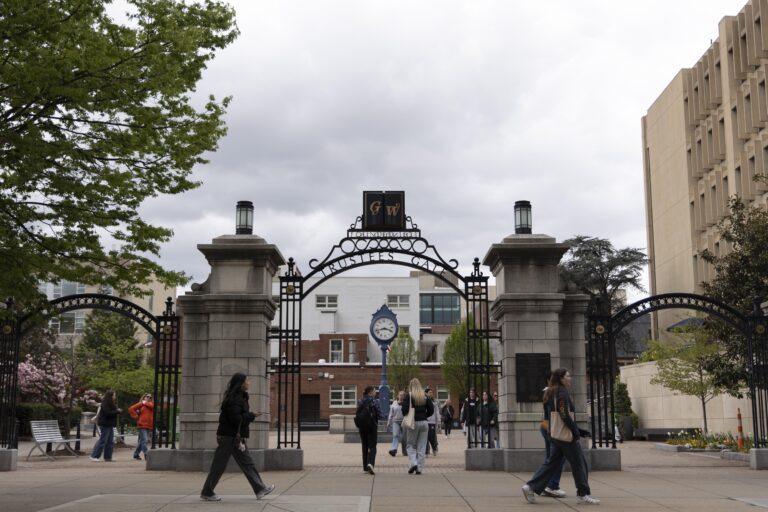Federal Investigation Targets Antisemitic Discrimination at Washington State Colleges
Washington Institutions Under Federal Review for Alleged Antisemitism
Four colleges in Washington state are currently part of a broader federal investigation involving 60 universities across the United States, examining claims of antisemitic discrimination on campuses. This inquiry, spearheaded by the U.S. Department of Education’s Office for Civil Rights (OCR), seeks to determine whether these institutions have breached federal civil rights protections that safeguard students from religious discrimination.
The investigation focuses on several critical areas:
- Antisemitic incidents: Including reports of harassment, property defacement, and exclusionary behaviors targeting Jewish students.
- Institutional responses: How college administrations have addressed complaints and enforced anti-discrimination policies.
- Support infrastructure: Availability and effectiveness of counseling services, safe spaces, and educational initiatives addressing antisemitism.
| College | Investigation Status | Focus Area |
|---|---|---|
| Evergreen State College | Under Review | Campus safety measures |
| University of Washington | Under Review | Handling of discrimination complaints |
| Seattle Pacific University | Under Review | Anti-bias training programs |
| Western Washington University | Under Review | Student support services |
Transformations in Campus Policies and Student Perspectives Amid Investigation
The federal scrutiny has prompted these Washington colleges to reassess and strengthen their policies related to discrimination and inclusivity. Administrations are actively revising nondiscrimination statements and introducing comprehensive training aimed at educating faculty, staff, and students about antisemitism and broader diversity issues. These initiatives are designed to cultivate safer, more welcoming campus environments.
- Integration of mandatory diversity and bias awareness sessions into orientation and ongoing education.
- Establishment of specialized offices dedicated to addressing antisemitic complaints with trained personnel.
- Implementation of anonymous reporting systems to encourage incident disclosure without fear of retaliation.
Student reactions vary, with many expressing increased confidence in campus safety and advocacy efforts, while some voice concerns about potential impacts on free expression and academic freedom. This dynamic has ignited important dialogues about balancing protection from discrimination with open intellectual exchange. Jewish student organizations, in particular, have become more engaged in campus leadership and community-building activities.
| Initiative | Description | Reported Outcome |
|---|---|---|
| Bias Incident Reporting App | Mobile platform enabling confidential submission of discrimination reports | Higher reporting rates and quicker responses |
| Interfaith Dialogue Forums | Regular meetings fostering conversations among diverse religious groups | Improved intergroup understanding and respect |
| Peer Mediation Programs | Student leaders trained to facilitate conflict resolution | Strengthened peer support and reduced tensions |
Legal Framework and Institutional Duties in Combating Campus Discrimination
Federal statutes, including Title VI of the Civil Rights Act of 1964, mandate that colleges receiving federal funds prohibit discrimination based on race, color, or national origin, which extends to religious discrimination such as antisemitism. The Department of Education’s Office for Civil Rights enforces these laws by investigating complaints and ensuring compliance. Institutions under review must not only have clear anti-discrimination policies but also demonstrate effective enforcement and educational outreach.
Key institutional obligations include:
- Conducting prompt and thorough investigations of reported incidents.
- Implementing corrective measures to prevent future occurrences.
- Providing ongoing training and resources to faculty, staff, and students.
- Maintaining transparency through regular reporting and accountability mechanisms.
| Responsibility | Expected Implementation |
|---|---|
| Incident Reporting | Accessible, clear, and timely reporting channels |
| Investigation | Objective and prompt fact-finding procedures |
| Policy Enforcement | Consistent application of disciplinary actions when warranted |
| Education | Regular workshops and awareness campaigns on diversity and antisemitism |
Strategies to Strengthen Inclusivity and Oversight on College Campuses
To build genuinely inclusive academic communities, colleges should implement comprehensive programs that promote cultural awareness and proactive engagement. Mandatory diversity training for all campus members, combined with peer-led initiatives, can foster empathy and reduce discriminatory behaviors. Visible support services for students affected by antisemitism or other biases are essential to affirm institutional commitment to equity.
Effective monitoring must move beyond reactive measures, adopting data-driven approaches such as confidential reporting systems, regular campus climate surveys, and dedicated diversity officers who can swiftly address emerging issues. The following accountability framework outlines best practices for sustained progress in inclusivity and student well-being:
| Action | Responsible Party | Frequency | Expected Result |
|---|---|---|---|
| Diversity and Bias Training | Faculty and Staff | Annually | Heightened Awareness and Sensitivity |
| Student Climate Assessments | Office of Inclusion and Equity | Twice a Year | Informed Policy Adjustments |
| Confidential Incident Reporting | Campus Safety and Compliance | Continuous | Prompt Response and Resolution |
| Peer Support Networks | Student Affairs | Monthly | Stronger Community Bonds |
- Increase transparency by publishing regular updates on incident reports and remedial actions.
- Involve students actively in policy development to ensure diverse perspectives are represented.
- Host intercultural events celebrating various traditions to foster mutual respect and understanding.
Conclusion: Navigating the Path Forward for Inclusive Higher Education
The federal investigation into antisemitic discrimination at four Washington colleges underscores a nationwide imperative to address campus climate and institutional accountability. The findings and subsequent actions will likely influence policies across higher education, encouraging universities to reaffirm their dedication to religious tolerance and inclusivity. As this process unfolds, academic communities and Jewish organizations alike remain vigilant, advocating for environments where all students can thrive free from discrimination.







